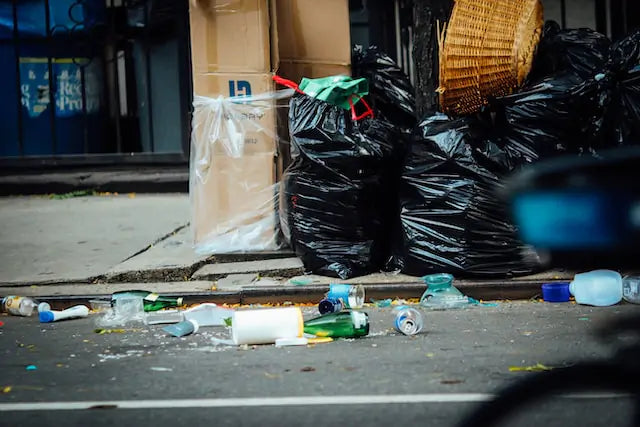Your basket is currently empty.
Shop NowHow to avoid a contaminated recycling bin

Are you a ‘wish cycler’? If you aren’t familiar with the term, it means someone who has good intentions to recycle but puts the wrong thing in the bin. According to Recycle Now figures, 84% of us are. So how can you get recycling right and avoid a contaminated recycling bin?
What happens if recycling bins are contaminated?
Contamination affects the quality of recycling and in some cases, entire loads are so contaminated they end up in landfill.
Contaminated Recycling Stats
Recycle Now captured data from over 3000 people in the UK. This is what they found.
- 84% of us well-intentioned recyclers put one or more non-recyclable items in our recycling bins.
- The biggest contaminators of recycling are drinking glasses, foil pouches, and toothpaste tubes.
- The top 10 recycling contaminants in the UK are:
- Drinking glasses
- Foil pouches
- Toothpaste tubes
- Plastic film lids
- Tissues & Paper towels
- Glass cookware
- Plastic film
- Cartons
- Plastic toys
- Frozen veg bags
Why should you avoid a contaminated recycling bin?
Aside from the fact that contamination can make entire loads of recycling unrecyclable, there are other issues it causes too. If your bin is contaminated, you might find that the council or waste contractor refuses to empty it.
That’s what happened to some Northampton residents, who hit out at their council’s waste contractor Veolia for refusing to empty their bins. Refuse teams left stickers on the bins, saying that the bin is contaminated with incorrect items that can’t be recycled. The sticker also told residents what they can and can’t put into their bins.
Residents say there are hundreds of bins across the town with stickers on them and they can’t believe they are all contaminated. Most of those affected say they haven’t had adequate information or advice about what they are doing wrong.
How to avoid a contaminated recycling bin?
Veolia Northampton’s general manager said there has been an increase in recycling bin contamination. Over a third of recycling collected in the town ends up in landfill or incinerators because it’s not recyclable.
What advice would he give to people who want to avoid contaminating their recycling?
- Check your local council’s website to see what you can and can’t recycle, and make sure it goes in the right bin or box.
- Rinse packaging before you recycle it so it’s not too contaminated to process.
- Avoid uncertainty about what you can and can’t recycle by typing your postcode into Recycle Now’s recycling locator tool.
For more interesting articles and tips on how you can recycle more, check out the rest of our blog.
